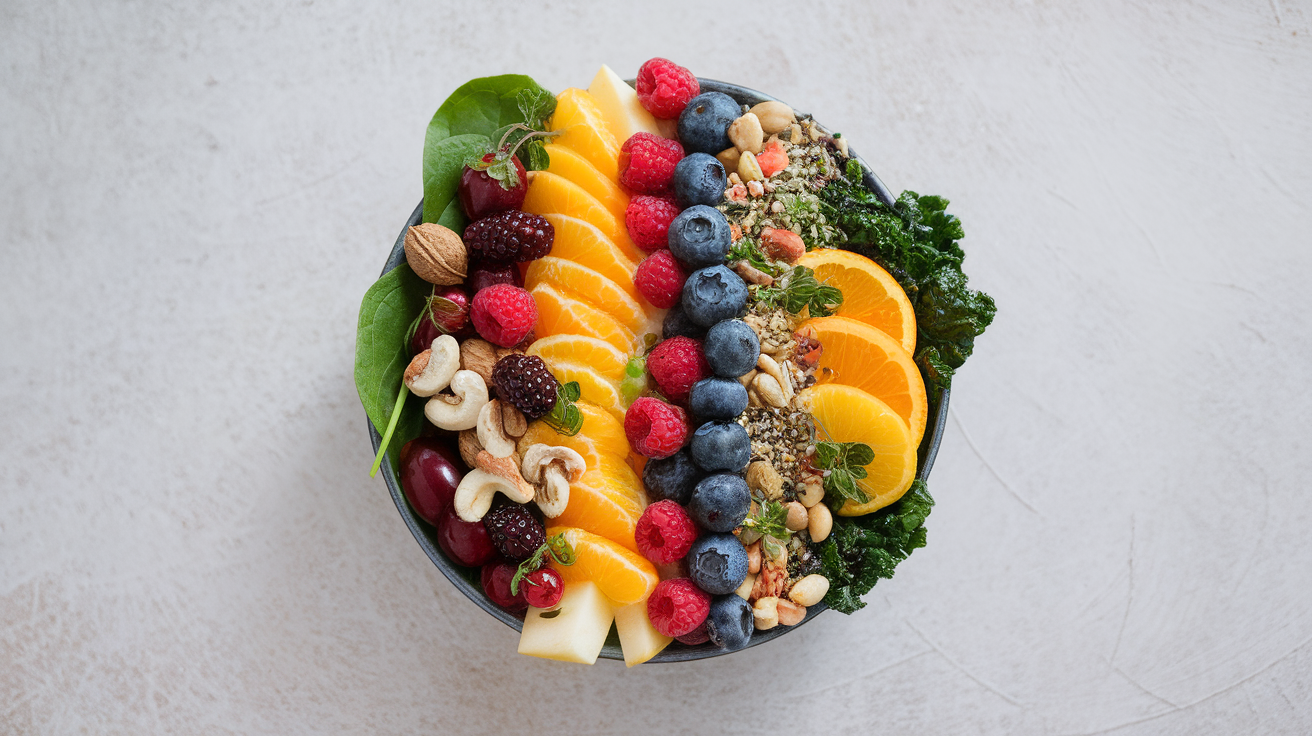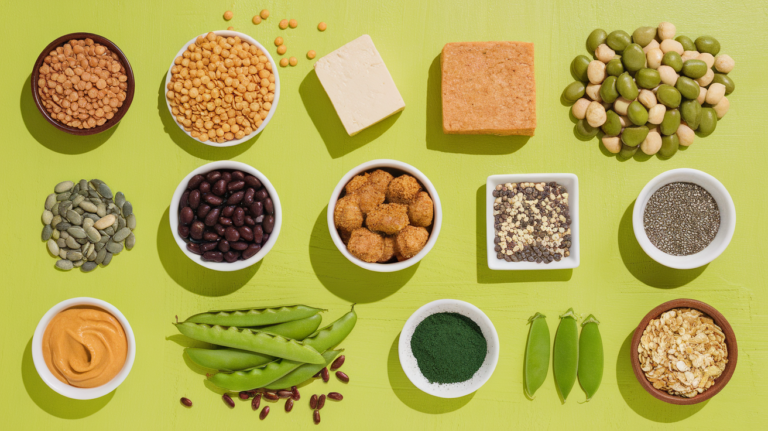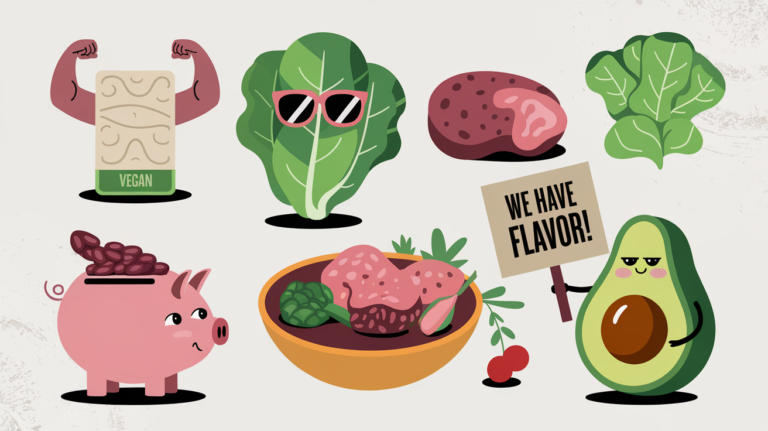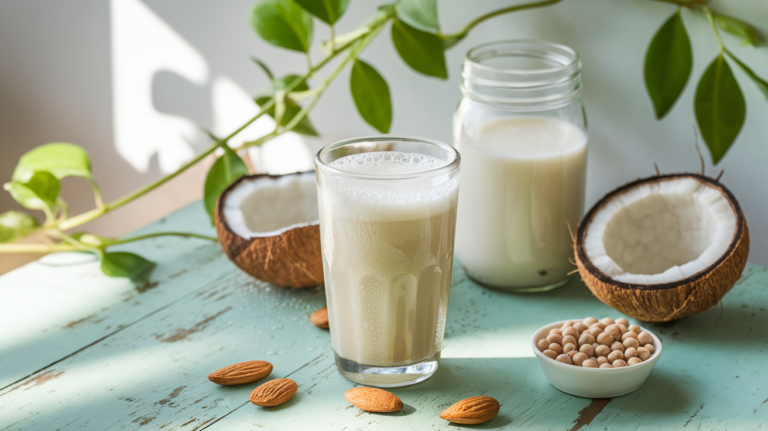Transitioning to a plant-based diet is exciting, but it also comes with new questions about nutrition. One of the most common concerns is ensuring you’re getting all the essential nutrients your body needs. While a well-planned vegan diet can provide almost everything, there are a few nutrients that require extra attention, especially vitamin B12. Here’s what you need to know to stay healthy and thrive on a vegan lifestyle.
Why Is B12 Important?
Vitamin B12 is crucial for maintaining healthy nerve function, producing red blood cells, and supporting DNA synthesis. Without it, you may experience fatigue, memory problems, or even nerve damage. Unfortunately, B12 isn’t naturally found in plant-based foods, so vegans need to be intentional about including it in their diet.
How to Get Enough B12
- Supplements: The easiest and most reliable way to get B12 is through a daily or weekly supplement. Look for cyanocobalamin, as it’s the most studied and effective form.
- Daily dose recommendation: 25-100 micrograms
- Weekly dose recommendation: 2,000 micrograms
- Fortified Foods: Many plant-based products are fortified with B12, such as:
- Nutritional yeast
- Plant-based milks (e.g., almond, soy, or oat milk)
- Breakfast cereals
- Meat substitutes
- B12 Injection Options: For those with absorption issues, B12 injections might be a better option. Consult a healthcare provider to determine if this is right for you.
Other Key Nutrients to Watch
While B12 often gets the spotlight, there are other nutrients that vegans should pay attention to. Here’s a quick breakdown of the essentials:
1. Iron
- Why it matters: Iron supports oxygen transport in the blood and energy production.
- Vegan sources: Lentils, beans, tofu, spinach, quinoa, and pumpkin seeds.
- Pro tip: Pair iron-rich foods with vitamin C (like citrus fruits) to boost absorption. For example, add lemon juice to your lentil soup or pair bell peppers with hummus.
2. Omega-3 Fatty Acids
- Why it matters: Omega-3s promote brain health, reduce inflammation, and support heart health.
- Vegan sources: Flaxseeds, chia seeds, walnuts, and algae-based supplements.
- Pro tip: Grind flaxseeds to maximize nutrient absorption. Add them to smoothies, oatmeal, or baked goods for an easy omega-3 boost.Omega-3s are often associated with fish, but algae-based supplements are a great plant-based alternative that provide DHA and EPA, the most beneficial forms of omega-3s.
3. Calcium
- Why it matters: Calcium is essential for strong bones and teeth.
- Vegan sources: Fortified plant-based milks, tofu made with calcium sulfate, tahini, and leafy greens like kale and bok choy.Incorporate calcium-rich foods into your daily routine by making smoothies with fortified plant milk, snacking on tahini with veggies, or adding bok choy to stir-fries.
4. Vitamin D
- Why it matters: Vitamin D helps your body absorb calcium and supports immune function.
- Vegan sources: Fortified foods and supplements (look for vegan-friendly D2 or D3 derived from lichen).
- Pro tip: Get sunlight exposure, but supplements are often necessary, especially in winter months or if you live in areas with limited sunlight.
5. Zinc
- Why it matters: Zinc supports the immune system and helps with wound healing.
- Vegan sources: Chickpeas, lentils, sunflower seeds, and whole grains.Try a zinc-rich snack like roasted chickpeas or include sunflower seeds in your salads for added crunch and nutrition.
6. Iodine
- Why it matters: Iodine is critical for thyroid health.
- Vegan sources: Iodized salt, seaweed (nori, wakame, and kelp), and supplements if needed.Be mindful of portion sizes when consuming seaweed, as excessive iodine can also be harmful. Sprinkle nori flakes on dishes for a subtle umami flavor.
Additional Nutrients to Consider
7. Protein
- Why it matters: Protein is vital for muscle repair, enzyme production, and overall energy.
- Vegan sources: Tempeh, tofu, lentils, edamame, quinoa, and seitan.
- Pro tip: Combine different protein sources throughout the day to ensure you’re getting all essential amino acids.
8. Selenium
- Why it matters: Selenium is an antioxidant that supports thyroid function and protects cells from damage.
- Vegan sources: Brazil nuts are an excellent source—just one or two a day can meet your selenium needs.
9. Magnesium
- Why it matters: Magnesium plays a role in over 300 enzymatic reactions, including muscle and nerve function.
- Vegan sources: Almonds, cashews, spinach, dark chocolate, and whole grains.
Tips for a Balanced Vegan Diet
- Eat a Variety of Foods: Diversity is key to covering all your nutritional bases. Explore new recipes and cuisines to keep meals exciting and nutrient-dense.
- Consider Regular Blood Tests: These can help you monitor your nutrient levels and adjust your diet or supplements as needed. Discuss with a healthcare provider which tests to take, such as for B12, iron, or vitamin D.
- Use a Vegan Multivitamin: A high-quality multivitamin designed for vegans can be a great safety net, covering nutrients like B12, iodine, and vitamin D.
- Batch Cooking and Meal Prep: Prepare meals in advance to save time and ensure you have balanced, nutrient-packed options ready to go.
- Stay Hydrated: Proper hydration supports digestion and overall health. Add a slice of lemon or cucumber to your water for flavor.
- Learn to Cook with Whole Foods: Cooking at home using whole, minimally processed ingredients ensures you control what goes into your meals.
Common Myths About Vegan Nutrition
- “Vegans Don’t Get Enough Protein”: As long as you eat a variety of protein-rich plant foods, it’s easy to meet your protein needs.
- “You Can’t Build Muscle on a Vegan Diet”: Many vegan athletes and bodybuilders prove this wrong with diets centered on legumes, tofu, seitan, and grains.
- “Plant-Based Diets Are Always Deficient in Nutrients”: A well-planned vegan diet can meet all your nutritional needs with the right knowledge and preparation.
Conclusion
By paying attention to nutrients like B12, iron, omega-3s, and calcium, you can enjoy all the benefits of a vegan diet while keeping your body nourished and energized. With a little planning and some simple strategies, you’ll not only survive but thrive on a plant-based lifestyle. Remember, transitioning to veganism is a journey, and it’s okay to learn and adjust as you go.
Ready to take the next step in your vegan journey? Explore our other posts for practical tips, delicious recipes, and inspiration to keep you motivated every day!




